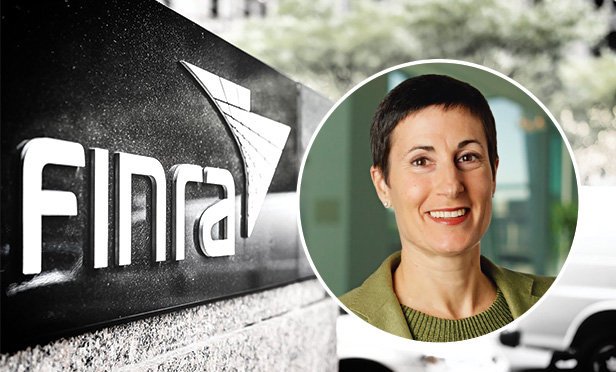
 Consolidation of the Financial Industry Regulatory Authority's three exam programs, which the broker-dealer self-regulator started in October, will be ongoing "throughout next year," Bari Havlik, FINRA's exam chief, said during a recent "FINRA Unscripted" podcast.
Consolidation of the Financial Industry Regulatory Authority's three exam programs, which the broker-dealer self-regulator started in October, will be ongoing "throughout next year," Bari Havlik, FINRA's exam chief, said during a recent "FINRA Unscripted" podcast.
The three exams — business conduct, financial and trading compliance — which currently are divided among three different programs are to be consolidated "under a single framework designed to better direct and align examination resources to the risk profile and complexity" of FINRA member firms, the regulator stated.
The merging "is not going to be a Big Bang, where things remain status quo today and we wait until the end of next year and flip a switch and make substantive changes," Havlik explained during the November podcast. "We'll look to make changes throughout the year as it makes sense."
As FINRA CEO Robert Cook has stated, some of the exam programs at FINRA were "never fully merged" after the agency was created in 2007 from the consolidation of the member regulatory functions of the National Association of Securities Dealers and the New York Stock Exchange.
Havlik, who served for 14 years as senior vice president and chief compliance officer for Charles Schwab, was named the self-regulator's new executive vice president for member supervision in April replacing Susan Axelrod, who's now the chief supervisory officer for Merrill Lynch Wealth Management.
FINRA's goal with the consolidation is to "tailor those examinations to the risks associated with the business model of the firms. So it's making better use of FINRA resources to really look where risks reside in the industry, risks to investors, risks to the integrity of the markets," Havlik said.
During her time as a compliance officer, Havlik said that she saw firsthand the weaknesses in FINRA's uncoordinated exam process. "We would experience duplicate requests for information, two different exam teams would look at the same issue and come to different conclusions. So that lack of coordination and duplication of efforts has a negative impact on firm resources."
While the new exam program will be organized around a firm's business model, Havlik said that FINRA is trying to nail down "what the right groupings of business models are so that we can train examiners, have expertise in those business models."
One business model example would be, for instance, a clearing firm.




